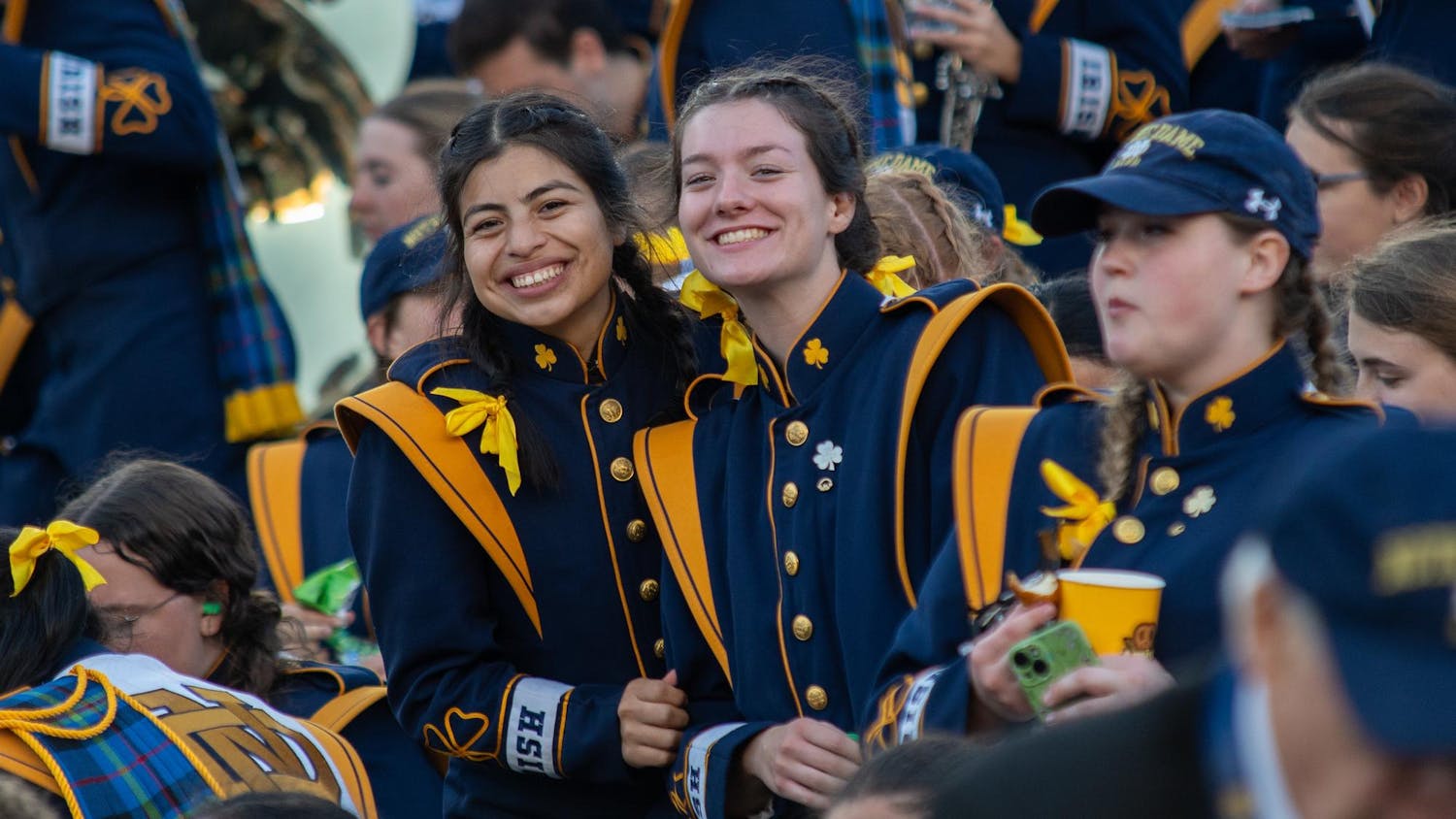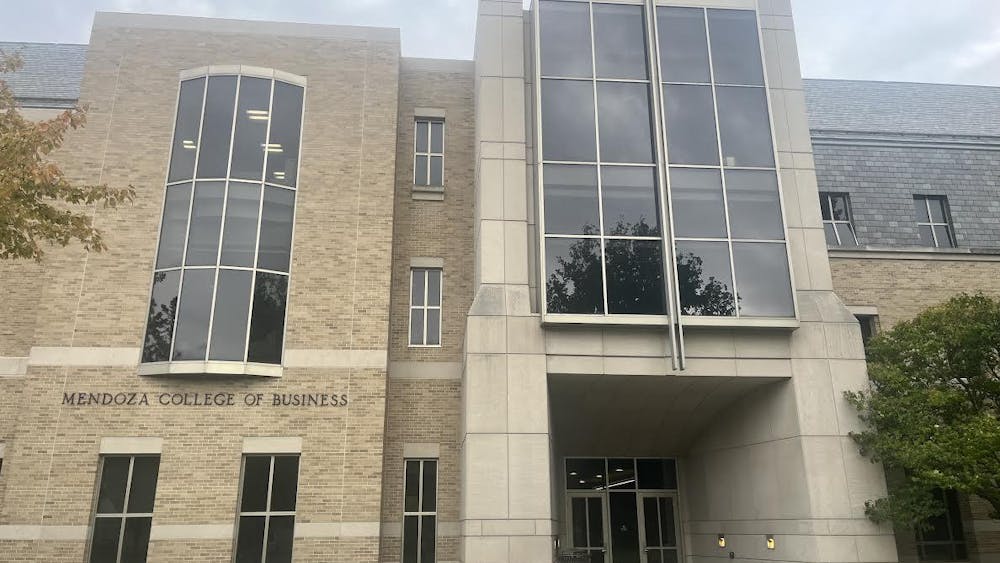Around 30 protestors gathered in Stanford Hall from 2 a.m. to approximately 5 a.m. Sunday morning for a silent protest against parietals and for an end to hate speech on campus.
In an email, University spokesman Dennis Brown said the Notre Dame Police Department (NDPD) received reports of “biased slurs” being directed at individuals in Stanford Hall on Friday night and in Keenan Hall on Saturday afternoon. Both matters are under investigation by the NDPD, Brown said.
“The rectors of Stanford and Keenan informed both halls about the incidents in an email on Saturday, reiterating that discriminatory harassment has no place in their communities or at Notre Dame,” he said in the email.
Brown confirmed the student who reported Friday’s incident was present at the Sunday morning protest.
The men and women who gathered for the protest had five demands, per literature distributed at the event: “End parietals,” “call it out when you see it,” “decolonize academia,” “decolonize this land” and “implement diversity training in each dorm.”
The protest began at 2 a.m. in an inner residential hallway of the first floor near rector Justin McDevitt’s apartment. Seated organizers occupied the hallway holding signs calling for a more tolerant campus climate.
At approximately 1:50 a.m., members of hall staff arrived to remind organizers parietals would soon be in effect. About 20 minutes later, McDevitt invited the group to move to a 24-hour space. After the group elected to stay, McDevitt called the NDPD.
At around 2:30 a.m., two NDPD officers arrived on the scene. An officer gave a similar address as McDevitt, asking them to relocate to a 24-hour space and reminding organizers of their parietals violations. Protestors who did not leave would be asked to present their Notre Dame IDs, the officer said.
About 20 protestors left before the officer made rounds for identification. The remaining 10 or so organizers resolved to stay until threat of physical removal.
At 3:30 a.m., another police officer arrived and again attempted to persuade the protestors to move to a 24-hour space or disperse. The officer warned organizers that suspension and expulsion could be a disciplinary option if they failed to comply. Protestors elected to continue the sit-in.
At 4:15 a.m., McDevitt came forward again, warning the University administration was prepared to invoke emergency actions and protestors would be summarily expelled if they did not leave, citing security risks.
It is up to the University’s discretion to decide when an incident qualifies for emergency actions, he added.
McDevitt advised the organizers to leave, arguing they had made their point and had nothing to gain from staying.
“If the purpose is to get people listening, they’re listening,” McDevitt said.
After a brief group meeting, the protestors announced they would comply on three conditions: a list of all disciplinary action leveled against the protestors; a clearer definition of “emergency procedures” and when the University can invoke them; and a list of all student rights pertaining to encounters with police.
It is unclear whether the University will comply with the organizers’ requests.
At the end of the protest, organizers said they plan to continue the sit-ins within a few days. They declined to provide further comment at this time.
This report was updated on 11/17/2019 at 11:30 p.m.
Students gather for sit-in against parietals, hate speech in Stanford Hall early Sunday morning
A sign that reads "Make sexism embarrassing again” is taped up by Stanford rector Justin McDevitt’s apartment for the student protest Sunday morning. Approximately 30 organizers sat protesting an adjacent hallway.
A sign that reads "Make sexism embarrassing again” is taped up next to Stanford rector Justin McDevitt’s apartment for the student protest Sunday morning. Approximately 30 organizers sat protesting an adjacent hallway.









